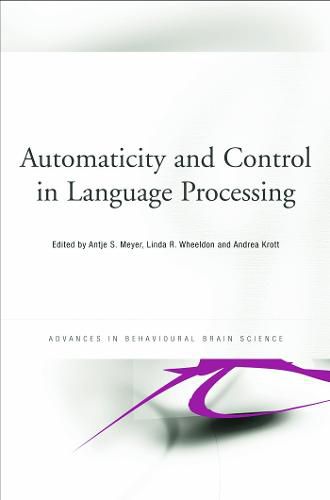Automaticity and Control in Language Processing

Automaticity and Control in Language Processing
The use of language is a fundamental component of much of our day-to-day life. Language often co-occurs with other activities with which it must be coordinated. This raises the question of whether the cognitive processes involved in planning spoken utterances and in understanding them are autonomous or whether they are affected by, and perhaps affect, non-linguistic cognitive processes, with which they might share processing resources. This question is the central concern of Automaticity and Control in Language Processing.
The chapters address key issues concerning the relationship between linguistic and non-linguistic processes, including:
How can the degree of automaticity of a component be defined? Which linguistic processes are truly automatic, and which require processing capacity? Through which mechanisms can control processes affect linguistic performance? How might these mechanisms be represented in the brain? How do limitations in working memory and executive control capacity affect linguistic performance and language re-learning in persons with brain damage?
This important collection from leading international researchers will be of great interest to researchers and students in the area.
This item is not currently in-stock. It can be ordered online and is expected to ship in approx 4 weeks
Our stock data is updated periodically, and availability may change throughout the day for in-demand items. Please call the relevant shop for the most current stock information. Prices are subject to change without notice.
Sign in or become a Readings Member to add this title to a wishlist.


